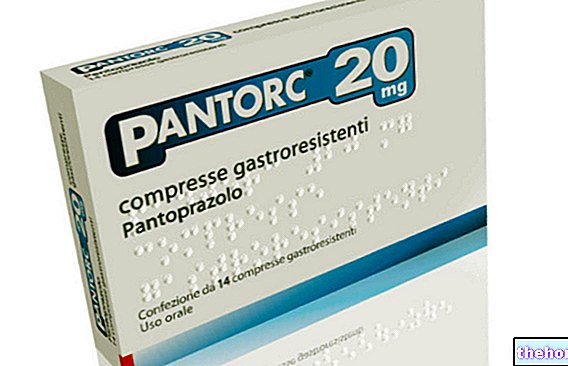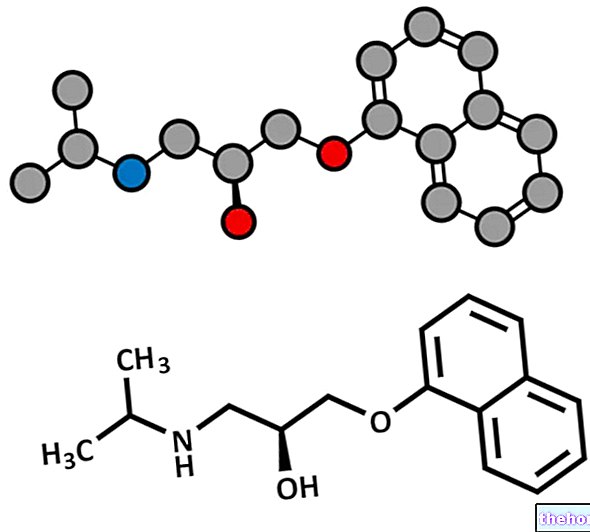BIMIXIN ® is a drug based on neomycin + bacitracin
THERAPEUTIC GROUP: Antibiotic - Intestinal antimicrobial

Indications BIMIXIN ® Neomycin + Bacitracin
BIMIXIN ® is indicated in the treatment of all intestinal affections such as acute and chronic enteritis or diarrhea sustained by microorganisms sensitive to neomycin and bacitracin.
Mechanism of action BIMIXIN ® Neomycin + Bacitracin
BIMIXIN ® is an antibiotic consisting of two active ingredients sharing pharmacokinetic and complementary properties from a pharmacodynamic point of view.
In fact, both neomycin and bacitracin taken orally, are poorly absorbed from the gastrointestinal tract, reaching the intestinal lumen at concentrations such as to guarantee a significant direct bactericidal effect against both Gram + and - bacteria and also parasites belonging to the protozoan kingdom.
From the pharmacodynamic point of view, the action of the two antibiotics is complementary, therefore able to enhance the bactericidal effect of BIMIXIN ®
More precisely, while neomycin, as an aminoglucoside, acts by inhibiting the ribosomal subunits, therefore also the protein synthesis of the bacteria, inducing its death, bacitracin, a polypeptide obtained from Bacillus subtilis, is able to inhibit the synthesis of the bacterial wall , facilitating the osmotic lysis of the pathogen.
Studies carried out and clinical efficacy
1. NEOMYCIN AND BACITRACIN IN THE TREATMENT OF ACUTE DIARRHEA
Eur Rev Med Pharmacol Sci. 1998 May-Aug; 2 (3-4): 131-6.
Comparison of two non-absorbable antibiotics for treatment of bacterial enteritis in children.
Beseghi U, De "Angelis GL.
Acute diarrhea is one of the most common pathological manifestations of gastrointestinal tract infections. Treatment with neomycin and bacitracin for 4 days has been shown to be effective in reducing symptoms, restoring the correct consistency of the stool, with only a few cases of stomach pain.
2. SENSITIVITY OF THE INTESTINAL FLORA TO ANTIBIOTICS
J Dairy Sci. 1993 Aug; 76: 2168-74.
Antimicrobial susceptibility of bifidobacteria.
Lim KS, Huh CS, Baek YJ.
This study, albeit dated, shows the importance of the effects of antibiotic therapy on the health of the intestinal flora. More precisely, the resistance of bifidobacteria to the most common antibiotics used in the therapy of intestinal infectious diseases was evaluated. The study shows how these bacteria are particularly sensitive to antibiotics such as bacitracin and neomycin.
3. NEMOCIN AND BACITRACIN IN THE PRE-OPERATIVE PHASE
Acta Chir Scand. 1990 Mar; 156: 223-30.
Prophylactic single-dose fosfomycin and metronidazole compared with neomycin, bacitracin, metronidazole and ampicillin in elective colorectal operations.
Nøhr M, Andersen JC, Juul-Jensen KE.
The risk of bacterial infections during surgery and in the post-operative phase could be particularly dangerous for the patient's health, significantly extending hospitalization times. This study used the combination of neomycin and bacitracin to reduce the risk of infection , proving to be particularly useful and safe.
Method of use and dosage
BIMIXIN ® 25,000 IU neomycin and 2,500 bacitracin tablets, 150,000 IU neomycin syrup and 15,000 bacitracin per bottle:
the recommended dosage in intestinal diseases of bacterial origin is that of 1 - 2 tablets or 2 tablespoons of syrup every 6 - 8 hours, for no more than 3-4 days.
In any case, the precise dosage must be formulated by the doctor, after a "careful evaluation of the physio-pathological conditions of the patient.
Warnings BIMIXIN ® Neomycin + Bacitracin
The administration of BIMIXIN ® should be limited to periods not exceeding 5 days to avoid the appearance of bacterial strains resistant to the two antibiotics contained in the medicine.
It is important to remember that the presence of intestinal lesions or malabsorption syndromes could significantly increase the gastro-intestinal absorption of the active ingredients, exposing the patient to potential nephrotoxic and ototoxic effects. In this regard, it would also be advisable to avoid the concomitant administration of drugs capable of masking the potential side effects of the drug.
BIMIXIN ® in syrup, contains sucrose, so its intake in patients with impaired fructose tolerance or glucose / galactose malabsorption syndrome or sucrase enzyme deficiency, could be associated with the onset of unpleasant side effects.
The drug should not be used in patients younger than 2 years of age.
PREGNANCY AND BREASTFEEDING
There are currently no clinical trials capable of effectively testing the safety profile of the drug for the health of the fetus, when taken during pregnancy or during the lactation period.
Therefore, the use of BIMIXIN ® during pregnancy and lactation should be limited to cases of real need and under strict medical supervision.
Interactions
Although both antibiotics contained in BIMIXIN ® are not absorbed from the gastrointestinal tract, thus minimizing the risk of drug interactions, it is advisable to avoid the simultaneous administration of potentially nephrotoxic drugs or drugs with renal activity, ototoxic, anticoagulants and agents capable of interfering with normal muscle functions.
Contraindications BIMIXIN ® Neomycin + Bacitracin
BIMIXIN ® must not be taken by patients with kidney diseases, intestinal lesions and related malabsorption and myasthenic syndromes.
Furthermore, the medicine is contraindicated in all patients with known hypersensitivity to one of the active ingredients contained in BIMIXIN ® or to similar compounds.
Undesirable Effects - Side Effects
Therapy with BIMIXIN ® resulted both from the various clinical trials and from the post-marketing experience well tolerated, with the appearance of minor side effects such as nausea, vomiting and constipation.
More serious adverse reactions such as oliguria, albuminuria, decreased renal function, ototoxicity and dermatological reactions due to hypersensitivity, have been observed rarely in patients with predisposition or lesions of the intestinal tract.
Note
BIMIXIN ® is a drug that can be sold under medical prescription.
The information on BIMIXIN ® Neomycin + Bacitracin published on this page may be out of date or incomplete. For a correct use of this information, see the Disclaimer and useful information page.




























